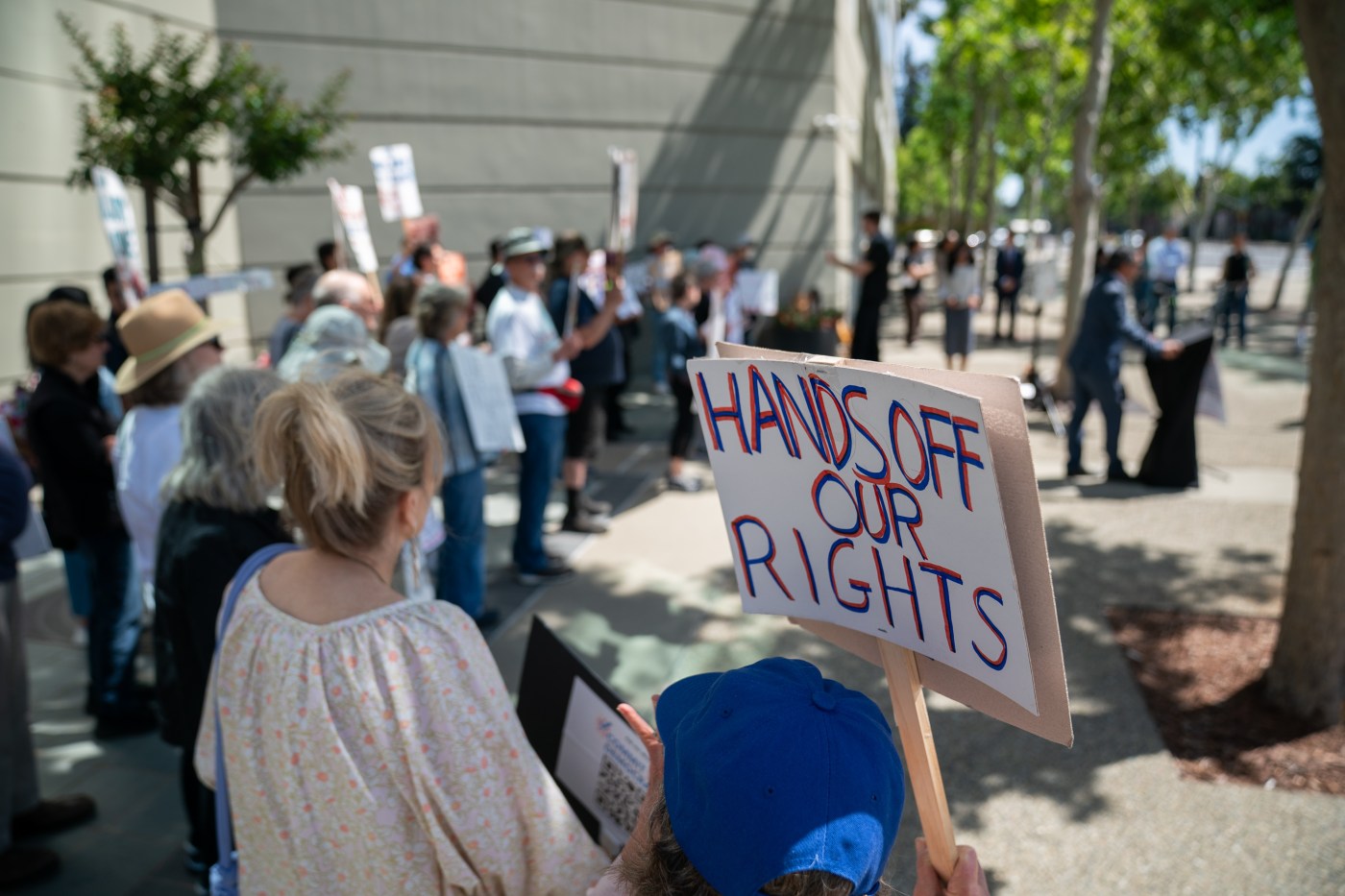
CONCORD — Immigrants navigating the justice system are falling victim to a federal campaign of fear mongering and misinformation in an attack on due process that has already scared hundreds, if not thousands, of people out of the courts, advocates say.
Immigration courts across the Bay Area, including in Concord, are overseen by the U.S. Department of Justice, which critics say has stoked fears of neutrality as federal officials have openly supported efforts to expand immigration enforcement within the executive branch.
Due to the spread of misinformation and fear, only a fraction of immigrants have shown up for their scheduled hearings in recent months, according to Sean Lai McMahon, an attorney representing the California Collaborative for Immigrant Justice. Recently, out of the 20 to 30 people scheduled for a daily docket, he estimated that only 10% typically appear.
When these crucial court dates are missed, he said, deportation orders are triggered automatically – a process that may permanently bar immigrants from returning to the United States, regardless of their case to win asylum or some other form of legal status.
“This is a massive change that’s happened in just the past couple of months due to the policy changes by the Trump administration,” McMahon said outside the Concord Immigration Court on Thursday morning. “People are afraid to access their day in court, rather than go through with their legal process and possibly get a status that would allow them to stay in the United States with their families and be safe.”
McMahon was joined Thursday by several local attorneys, immigration advocates, religious leaders and other community members outside the Concord court on Gateway Boulevard, which opened in February 2024.
Despite no reports that U.S. Immigration and Customs Enforcement officials have conducted operations or arrests at the Concord courthouse, he said the administration has sent mass emails to immigrants, which incorrectly claim that their parole has been revoked and they must self deport within seven days.
Several attorneys also reported seeing flyers posted inside the Concord Immigration Court that advertise legally incorrect information about self-deportation, including claims that the government will pay $1,000 to immigrants who voluntarily relocate, as well as preserve their right to apply for legal status.
Moreover, McMahon said some judges have issued notices to immigrants without legal representation that their asylum applications will be rejected unless they can independently follow extremely detailed, difficult court procedures. Unlike criminal court, people facing immigration proceedings are not guaranteed the right to an appointed attorney.
“As a part of due process, you have the right to have been heard by a neutral decision maker, but the immigration court is not an independent court,” McMahon said, clarifying that everyone has these rights, regardless of citizenship status. “Every day, we’re swamped with calls from people who believe they’ll be arrested at the court — that they’ll be separated from their children — which is not true.”
Sergio Lopez, a volunteer coordinator for Welcome Navigators, intimately understands how stressful and terrifying the justice system can be for immigrants. Reflecting on his experience seeking asylum from Nicaragua in 2019, including six months in detention, the 38-year-old said helping to provide a friendly face is the least he can do to help the immigrant community get the same support he did.
“Court is extremely hard to navigate, especially in a country where everything is new,” Lopez said. “We try to not just give information, but also smile at people — make sure they are feeling some sort of welcome.”
Kate Mahoney, a senior staff attorney with the Immigrant Legal Resource Center who has worked in the field for nearly two decades, said immigration court has long been compared to “hearing death penalty cases in a traffic court setting.”
However, she said the federal government’s recent attack on immigrants’ legal rights is unprecedented.
She lambasted the Trump administration’s attempts to cut funding to legal resources, information and programs for immigrants — who often lack legal representation — while de-prioritizing efforts to prosecute corporate wrongdoing or other white-collar crimes.
“The court is completely abandoning its duty of neutrality and instead becoming the prosecutor,” Mahoney said. “To be clear, our immigration courts have never lived up to these values, but right now, the minimal guardrails are failing.”